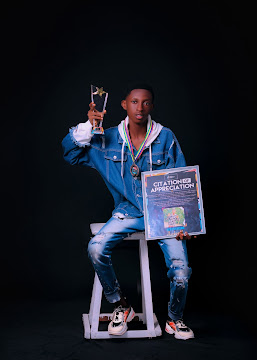Afrobeats pushes the boundaries of traditional African rhythms by infusing them with contemporary influences like hip-hop, R&B, and pop. This unique blend of musical elements has created a genre that resonates with audiences all over the world.
Afrobeats has a rich and long history that can be traced back to the 1960s when Nigerian singer Fela Kuti, drummer Tony Allen, and their band Africa 70 (later known as Egypt 80) pioneered the sound. Fela Kuti, often referred to as the “father of Afrobeats,” was known for his innovative approach to music, fusing traditional African rhythms with elements of jazz, funk, and highlife. His music was not only musically groundbreaking, but also socially and politically charged, addressing issues of corruption, oppression, and inequality.
The early 2000s saw the emergence of other Nigerian musicians like 2face Idibia and D’banj. These artists spearheaded the popularity of the genre but the global popularity of Afrobeat music did not take off until the middle of the 2010s. Wizkid, Davido, Burna Boy, and Mr. Eazi are just a few of the musicians who have launched the genre into mainstream international success. Afrobeats artists have now amassed millions of streams on platforms like Spotify and Apple Music and some have become household names.
These artists and others have perfected the art of blending genres such as Hip-hop, R&B, dancehall, and more, in their Afrobeat music. For instance, in hit songs “On The Low” Burna Boy and “Show You The Money” by WizKid skillfully combines Yoruba rhythms with captivating afro-fusion elements. Similarly, Davido’s chart-topping track “Fall” exemplifies the convergence of Western and Eastern influences. These are just a few of the countless songs that have left an indelible mark on my childhood. They are the timeless tunes that are played at weddings, blaring in the car with friends, and forming the soundtrack to my solo dance parties. They are more than just songs; they are cherished memories and a testament to the enduring popularity and impact of Afrobeat music in my life and beyond.
Along with these cherished memories associated with Afrobeats, this genre of music also serves as a powerful expression of African and Afro-diaspora pride within myself and those around me. Through its lyrics that often celebrate African identity and culture, Afrobeats music becomes a vital component of African cultural expression. Many African listeners are deeply drawn to Afrobeats songs as they view them as a means to proudly showcase their rich heritage, traditions, and identity to the world. Afrobeats also critique systems of power and inequality on the continent and in the diaspora. Afrobeats music often addresses social, political, and economic issues faced by Africans both within Africa and in diaspora communities around the world. Afrobeats artists often use their music as a platform to raise awareness and critique the existing power dynamics.
Highlife
highlife, type of West African popular music and dance that originated in Ghana in the late 19th century, later spread to western Nigeria, and flourished in both countries in the 1950s. The earliest form of highlife was performed primarily by brass bands along the Ghanaian coast. By the early 20th century these bands had incorporated a broader array of instruments (primarily of European origin), a vocal component, and stylistic elements both of local music traditions and of jazz. Highlife thus emerged as a unique synthesis of African, African American, and European musical aesthetics.







0 Comments